#Ruth McCartney
Explore tagged Tumblr posts
Text

PAUL McCARTNEY with RUTH, STELLA, MARY & HEATHER McCARTNEY in Heswall. 1973 [?].
54 notes
·
View notes
Text

Via Paul McCartney +3 (Facebook)🌼🌼🌼
#60s icons#girlsofthesixties#60s couples#the beatles wives#60s muses#paul mccartney#linda mccartney#heather mccartney#mary mccartney#ruth mccartney#jim mccartney#family#1971
15 notes
·
View notes
Text

The McCartney family
#the fab four#the beatles#in my life i loved them all#paul mccartney#jim mccartney#angela mccartney#ruth mccartney
7 notes
·
View notes
Text
♫ ?? ♫
Sheesh … where does time GO??? Already it is after 3:00 a.m., I just finished responding to yesterday’s comments, and I haven’t yet done today’s music post! Okay, well … I’m a bit on the blue side tonight, so I’m gonna turn to my man, Stevie Wonder, and this one that is something different I posted a few years ago (2020). I hope you enjoy it … I’ll try to be more original tomorrow … I’m doing…
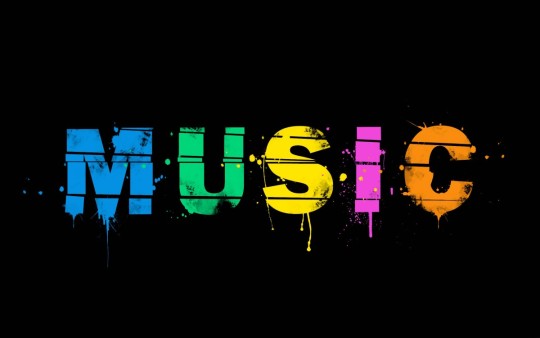
View On WordPress
#Carpool Karaoke#Gavin & Stacey#James Corden#Late Late Show with James Corden#Paul McCartney#Ruth Jones#Stevie Wonder
0 notes
Text
Caplans Playlist Challenge

Rules:
tag me in the authors notes with the hashtag #CaplansPlaylistChallenge
Please tag the proper warnings before the fic
Please include a summary for your fic.
Can be ANY CHARACTER/FANDOM YOU'D LIKE!!
More than one person can write for the same prompts
If you’d like to write for more than one song, please make them separate fics
Can be however long you’d like the fic to be. But PLEASE use the readmore feature if over 400 words.
No deadlines, but please keep me updated!
also, please reblog this challenge for others to see!
Addicted to you - simple plan
Alone together fall out boy
Animals maroon 5
Ashes of Eden Breaking Benjamin
Adore You Harry Styles
All of Me John Legend
Anti- Hero Taylor Swift
Attention Charlie Puth
--
Bad guy Billie Eilish
Bad things Jace Everett
Bartender T-Pain
Bedchem Sabrina Carpenter
Before he cheats Carrie Underwood
Before you go Lewis Capaldi
Better than me hinder
--
Cardigan Taylor Swift
Car radio twenty one pilots
Church fall out boy
Clumsy Fergie
Collide Howie Day
Come & get it Selena Gomez
Crazy Patsy Cline
Criminal Fiona Apple
--
Dancing on my Own Calum Scott
Dandelions Ruth B.
Deja vu Olivia Rodrigo
Diary Tino Coury
Dirty laundry Carrie underwood
Dirty thoughts Chloe Adams
Drivers license Olivia rodrigo
--
Easy on Adele
Eh, Eh, (Nothing Else I Can Say) Lady Gaga
Empty Walls Serj Takien
End of Beginnings Djo
Espresso Sabrina Carpenter
Every breath you take the police .
--
Faint Linkin Park
Fall for you secondhand serenade
Fallin Alicia keys
Falling Trevor Daniel
Fast car Tracy Chapman
Feather Sabrina Carpenter
Flowers Miley Cyrus
--
Ghost Justin Beiber
Give Me One Reason Tracy Chapman
Glimpse of us Joji
Good For You Olivia Rodrigo
Gone, Gone, Gone Phillip Phillips
--
Had Enough Breaking Benjamin
happier Olvia Rodrigo
Harder to Breathe Maroon 5
Heartbreak anniversary giveon
Heaven Kane brown
--
I fall apart post Malone
I miss you blink 182
I see red everybody loves an outlaw
I’m not the only one Sam smith
I’m yours alessia cara
--
Jealous nick jonas
Juno Sabrina Carpenter
Just one yesterday fall out boy
Just the way you are Bruno mars
--
Keep Holding On Avril Lavigne
The Kill 30 Seconds to Mars
Kiss From a Rose Seal
Kissing In Cars Pierce the Viel
Killer queen Queen
--
The last of the real ones
Leave the door open Bruno mars
Leavin’ Jesse McCartney
Like I can Sam smith
Lips of an angel hinder
Little do you know Alex & sierra
--
Mama's broken heart Miranda lambert
Man down Rihanna
Misery Maroon 5
My Boo usher & Alicia key
--
Needed Me Rihanna
Never gonna be alone Nickelback
New Rules Dua Lipa
Not Over You Gavin DeGraw
--
Obsessed Mariah Carey
One Call Away Charlie Puth
One More Night Maroon 5
Our Song Taylor Swift
--
Paparazzi Lady Gaga
Picture KidRock & Sherry Crow
PillowTalk Zayn Malik
Please Don’t Leave Me Pink
--
Red Taylor Swift
Remember the time Michael Jackson
Rolling in the deep Adele
--
Say My Name Destiny’s Child
Say So Doja Cat
She’s Got You Patsy Cline
Stay With Me Sam Smith
Smokin out the Window Bruno Mars
Someone You Loved Lewis Capaldi
--
Take a Bow Rihanna
Take Me to Church Hozier
There’s Nothing Holdin Me Back Shawn Mendes
Too Good at Goodbyes Sam Smith
Trip Ella Mae
--
Unfaithful RIhanna
Unholy Sam smith
Unsteady X Ambassadors
Uptown Girl Billy Joel
--
Wait For You Elliot Yamin
Walk Me Home P!NK
Walkin After Midnight Patsy Cline
Want U Back Cher Lloyd
What a Man Gotta Do Jonas Brothers
What Ifs Kane Brown
Wolves Selena Gomex
Would You Go With Me? Josh Turner
--
You and Me Lifehouse
You Found Me The Fray
You Had Me @ Hello A Day to Remember
You Sang to Me Marc Anthony
You're Still the One Shania Twain
114 notes
·
View notes
Note
I enjoy your blog and opinion especially father and son McCartney. I don't mean anything bad with this post. I just try to understand Paul a bit more. Can you give some opinion about Paul's relationship with his Mother Mary, the aunts, and the stepmother and sister Ruth. I've seen some posts and read a few biographs but it doesn"t really seem to fit. Do you think his Mother would have allowed Paul to become a part if the band? And this is just a personal question to you. Do you think that Paul's father might have thought about the queer posibilty with Paul and John?
Hahaha you're like "you do know he has other family members too, right?"
And you are so correct! Thanks for asking this, I'm really excited to get into my thoughts on these extremely niche, rare Beatles characters lol.
Long rambling road under the cut
Mary:
Born to an Irish immigrant father and a Liverpool-Irish mother in Liverpool.
When her mother died when she was very young, her father lost everything in a horse racing bet and moved them back to a tiny farm in Ireland where she was expected to become the new mother to her younger siblings
When her father remarried, his new wife basically acted like Cinderella's step mother to Mary, so she found shelter with some aunts in Liverpool.
At 14, she started working full time as a nurse, while continuing to train to expand her skill set.
By the time WWII came around, she was a state registered nurse and midwife.
She was 31 when she met Jim. At that age at that time, she was considered a spinster. Secondary sources say she was too career-driven to have thought of marriage, and that's possible. But my theory is she just wasn't interested in the whole husband and kids thing after her childhood experiences. Whatever the case, Jim won her over easily, according to sources.
Jim also won her over when it came to religious studies. Apparently, before Jim Mary was a somewhat faithful Catholic, and though it mattered enough to her to have her boys baptized (or christened or whatever it is they do to babies) and taught the basics of the religion at home, she agreed they would not go to Catholic school or attend mass. My theory is this was a class climbing thing.
Because they were part of the war effort, Jim and Mary were allowed to live in government housing, and they continued doing so after the war because Mary continued working for the government.
Paul and Mike always say it was her choice to constantly be moving to slightly nicer apartments in slightly nicer areas. I don't know if she earned that choice through just being really dedicated to her job or through diplomacy with whoever was in charge of that or both, but I would love to know. We know Paul got his diplomacy skills from Jim and trauma, but could be also have some from Mary's side?
Mary was apparently quite strict with her children, had extremely high expectations for academics, behavior, cleanliness, and even accent. She must have approved at least to some degree of Jim's corporal punishment, because she would threaten to call him in when she was very upset with her sons (for example, when Paul drew a nude woman at school). She was the more affectionate parent, but neither Paul nor Mike describe her as notably cuddly or doting, and if she only managed to say to her husband that she loved him on her death bed, it's not entirely out of the realm of possibilities that she did the same to her children.
When Paul has been asked about his earliest memory, he has mentioned three things that I'm aware of. 1. Waiting to hit some bully over the head with a crow bar (sounds too crazy to be true but also too crazy to be a lie) 2. A neighbor gifting his mother a porcelain doll in gratitude for her work to bring their baby into the world (he says people would bring gifts often) 3. His mother bicycling to work in the snow (she continued to ride her bicycle to work even doubled over in pain during her struggle with breast cancer, and she was on call at all hours of the night and day)
Although Mary worked very hard outside the home and always made more money than Jim, it seems she also took on the majority, if not the entirely, of the housework. Before her death, Paul remembers her heaping piles of pancakes on shrove Tuesday, sugar butties, scouse, and yorkshire pudding with golden syrup. After Mary's death, Mike remembers eating bread fried in lard, fighting over it with Paul, and ending up throwing it at the wall, leaving a stain, and getting in trouble. Paul also took on cooking responsibility after Mary's death. Mary kept the house immaculately clean. She refused to own a clothes washer, saying it was immoral. When she was literally about to die from tumors in her breasts and brain, Mary deep the whole house and laid out her children's clothes, so everything would be ready if she didn't come back. (Which is insane on multiple levels. 1. That poor woman. Why did she feel like she had to do all that? 2. As a mom, I'd rather spend that time doing some activity my children enjoyed or talking with them or writing them letters or something, but for whatever reason, either Mary just didn't have that in her, or she genuinely thought the house was more important)
Paul definitely has (or had) a lot of strong feelings about Mary. Two of his biggest regrets as far as things he wishes he hadn't said had to do with her. The first was while she was alive. She, as mentioned before, was very big on the Received Pronunciation accent because she was very big on giving her sons a better life than she'd been given and at the time that was a major key to the class ladder. Anyway, once, when they had company over, Mary was trying to talk posh, and Paul corrected her in front of the company and she was clearly very embarrassed and he immediately regretted it and continued to regret it for decades. Then there's the infamous (VALID!) "what are we going to do without her money?" quote, which has been talked about. I bring it up here to point out that pre-teen Paul very much depended on his mother financially. Speaking of memories of his mother, though, Paul said, in the early 2000s I believe, that if he could go back in time for any reason, it would be to spend more time with his mother.
The family didn't have money for a marked grave at the time (I assume) and her grave remains unmarked to this day, probably for privacy and respect, but someone on the Mohin side of the family made a big stink about it on the internet because Paul was apparently stingy with that side of the family. Whatever.
My I guess nutshell take on Mary is this. Paul didn't really think his mom was cool like he thought his dad was, but he understood that she was the parent he needed to model himself after if he was going to be successful, so he tried to be practical, hard working, perfectionistic, ambitious, stoic, dependable, gentle, strong, etc like she was.
Mike:
I really think this quote sort of defines the complication and depth of love in their relationship.
Everybody was quite confident that Paul would pass the eleven-plus – for Mum and Dad thought of him as the brains of the family. And of course, he didn’t let us down, because he was a natural at exams. When I passed in my turn, it was so unexpected, apparently, that Mum burst out crying – I think the idea that she had two “intelligent” sons was too much for her! They say sensitivity often goes with intelligence and certainly I’d say this was true of Paul. Although on the surface he tried to give the impression that he was a fairly tough, swashbuckling, mildly-tearaway character, underneath there was a great deal of thoughtfulness and real tenderness.” – Mike McCartney, 1965
They also did all the normal sibling stuff like dangerous dares, rough housing embarrassment, stupid shenanigans, etc, and there are stories of Paul coming to Mike's aid when it came to bullies at school and their dad. There's all the great pictures Mike took of Paul with the camera Paul got him, the McGear album, and Paul being Mike's best man.
My take is that they were and are very close and loving and protective of each other despite being sort of accidentally pitted against each other by the toxic family roles they fell into.
Aunts:
Just on Jim's side there were six aunts, and on Mary's there were potentially three, though I'm not sure how close they were with that side of the family.
btw very weird naming going on. There's an Ann and an Annie as well as having an auntie Jin, Jim's older sister.
Jim's side actually started having these "family sing songs" when he was very young for the purpose of making money for the family the minute they were gifted that piano Paul learned on. They'd advertise and charge for admission to these things. They kept them up, just for a family bonding experience, long after they'd all got grown up jobs and spouses and kids. Paul remembers these events extremely fondly, credits them for much of his success as a composer, and brings them up any time anyone asks about his family life growing up. The drunken singing aunties generally feature prominently. Paul also kept up the tradition at least into the late seventies.
Paul and Mike were sent to live with a few different aunties for a few months after Mary's death while the family tried to get Jim's suicidal ideation etc under control. Accounts vary, but I believe it was once of these aunts who told them the news about their mother and sent them to school that very day.
Some of the aunts would take turns coming on about a biweekly basis to help Jim Paul and Mike around the house after Mary's death. We don't know if this continued indefinitely or just until they could get their feet under them again. Either way, they definitely get points for doing that.
Auntie Jin once told Mike and Paul off for looking unhappy soon after their mother's death and reminded them to think of their father and stop acting so sad. Well meaning, I'm sure, since she was probably terrified for them that one little thing could result in their losing a second parent in the most horrible way. But. Definitely scaring.
Auntie Jin was known as "control" and was very much the Queen Bea of the family.
Once Paul got money, he began paying for extended family expenses, like phone bills, hospital stays, or new furniture. This obviously includes the aunties.
When the extended family heard he was getting into weed, they sent Auntie Jin to go talk some sense into him, but he converted her and she went home and converted the whole family.
My general take on the aunties is this. They all seem to be doing their very very best with very very little. I don't even begrudge the emotional abuse because they genuinely didn't have a better option. I do wince at the financial exploitation, but only slightly. It's one of those things where you would hope they'd have a little more empathy for their nephew holding up the family like Louisa from Encanto, but nobody is perfect.
Angie:
Married a man almost 30 years her senior after meeting him five times to make sure he had full access to his millionaire son's bank account.
Enabled, or at least did nothing to stop, her husband's crippling gambling addiction, instead allowing her stepson to cover the damages.
Resented when said unlimited bank account turned into an allowance upon said son's marriage and fatherhood.
Panicked when her ancient husband kicked it and immediately sold off the famous son's personal childhood mementos while he was conveniently in another country for work.
Got pissed and went to the press when stepson cut her off.
Calls herself Mrs McCartney to this day for marketing purposes and milks that dead relationship like an abused dairy cow.
Do I blame her for getting that bag? Not really. Am I a fan? Not really.
Ruth:
Remembers thinking Jim's new mansion and the nice things inside it were impossibly huge and fantastic when she first met him.
Remembers Jim as kind, gentle, and stoic.
Remembers Paul's time with Jane Asher very fondly and seems almost to credit her for her positive early memories of Paul, such as them (she also remembers John) teaching her how to ride a bike or taking her shopping. Paul bought her a dog and they'd play in the backyard and experiment when being parents on her and she loved it.
Her remembrances shift dramatically with the arrival of Linda. The shared bank account closed, Paul was focused on his actual children, and she has a few memories of Paul verbally taking out his pain on her similar to the apple employees.
Then, she gets almost Francie Schwartz levels of bitter after Paul cut her and her mother off. She was almost seventeen, and Paul had paid for her to go to all the best schools all her life and set her up with every possible advantage, not to mention the famous connection she'd go on to drag into the next century. I don't feel bad at all.
My basic take on her is this. Spoiled brat. Excellent source on Paul and his dad.
Did Jim think John and Paul might've been gay for each other?
My gut tells me yes, but there's really no way of knowing. Jim might've hated John because he was worried about Paul's sexuality, or he might've just hated John for being a positive presence in his son's life who encouraged independence. Who knows?
Would Mary have allowed Paul to become part of the band?
I think her attitude would've been very similar to Mimi's -- weirdly I think those two would've been great friends and I actually would love to see a Mimi/Mary fix-it fic someday. But. -- I think Paul would've had some difficulty defying his mother simply because his respect for her was so great, but I actually hate when people go with that Mike quote that says she would've never allowed the band. I think if Paul got past his dad's physical and financial abuse as well as the emotional manipulation in order to be in the band, he would've found a way to get around Mary too.
60 notes
·
View notes
Text
Song Lyrics to Use as Inspiration for Your Stories (SFW)
This totally isn't my attempt at getting my music taste validated, not at all!
"I'd die all day and every night just to miss you." - Flatline (5 Seconds of Summer)
"We still talk like every day, but we don't talk in the same way that we used to." - A Part of Me (Neck Deep ft. Laura Whiteside)
"We won't break, we won't die, it's just a moment of change." - All We Are (OneRepublic)
"Maybe I was stupid for tellin' you goodbye." - My Life Would Suck Without You (Kelly Clarkson)
"I see sparks fly whenever you smile." - Sparks Fly (Taylor Swift)
"Risk it all 'cause I'll catch you if you fall." - If My Heart Was A House (Owl City)
"They'll tear us apart if you give them the chance." - Check Yes, Juliet (We the Kings)
"And I've heard of a love that comes once in a lifetime. And I'm pretty sure that you are that love of mine." - Dandelions (Ruth B)
"You're not just someone I can live with; you're someone I can't live without." - I Want It All (The Script)
"Now here we are, so close yet so far. Haven't I passed the test?" - Give Your Heart a Break (Demi Lovato)
"So won't you give me tonight and the rest of your life? I wanna have it all with you." - Biblical (Calum Scott)
"And if you say you're okay, I'm gonna heal you anyway." - The Cure (Lady Gaga)
"'Cause baby, everything you are is everything I need." - Everything I Need (Skylar Grey)
"You give me a reason, something to believe in." - Homesick (Dua Lipa)
"Won't you take me by the hand, take me somewhere new?" - I'm With You (Avril Lavigne)
"Lucky we're in love in every way, lucky to have stayed where we have stayed, lucky to be coming home someday." - Lucky (Jason Mraz ft. Colbie Caillat)
"Your kiss is like whiskey, it gets me drunk. And I wake up in the morning with the taste of your tongue." - My First Kiss (3OH!3 ft. Kesha)
"And I wonder if I ever cross your mind. For me, it happens all the time." - Need You Now (Lady A)
"If I wanted to leave, I would've left by now but you're the only one that knows me better than I know myself." - Better Than I Know Myself (Adam Lambert)
"Won't you sing me your sweet lullaby? Just the sound of your voice is the thing that I need." - Lullaby (Sigala and Paloma Faith)
"With your body next to mine, our hearts will beat as one. And we're set alight, we're afire love." - Afire Love (Ed Sheeran)
"It's not a walk in the park to love each other, but when our fingers interlock, can't deny, can't deny you're worth it." - Still Into You (Paramore)
"And be standing there beside you right when the storm comes through." - Army of One (Coldplay)
"Even if we can't find heaven, I'll walk through hell with you." - Stand By You (Rachel Platten)
"I’m not afraid to look insane 'cause I’m crazy 'bout you." - My Gospel (Charlie Puth)
"I was a wreck when you came along. When there was nothing left, you showed me the best." - Better With You (Jesse McCartney)
"'Cause it's true, I am nothing without you." - With Me (Sum 41)
#writeblr#imagine your otp#otp prompts#writing#romance prompts#writing prompt#otp writing#prompt list#h-otp-p-g#cute prompts#h-otp-p-g-sfw#song lyrics
73 notes
·
View notes
Note
Hi!! Could you make a compilation of all the times their relationship is compared to a marriage (or something similar), either by them or by people close to them?
"Marriage", "love affair", "girlfriend", "wife", etc: A Compilation
“I think it was like he was married to Paul. And now he was married to me so it was like a situation that he didn’t feel like he wanted to go back." (Yoko Ono)
"Why this odd little Japanese lady? The reason, many people believed, was that more than a trophy wife, a model or an actress, John needed a chum. His love affair with Paul McCartney was ending." (Peter Brown)
“That’s very hard to delve into. They were great friends, and had great mutual respect, but they were also quite different from one another. I don’t know. Human relationships are tough to analyze. It’s like trying to talk about someone else’s marriage.” (Peter Asher)
“I still think at the back of John’s mind was this fascination of wanting to get back with the first girlfriend... and that was to get back with Paul, who he had so much history with.” (Tony Barrow)
"It's like a marriage. These two broke up. And it took Paul a long time to get over it. John too, but he was just too macho to show it. But they had a marriage before Yoko arrived, although they both had girlfriends before." (Ray Connolly)
"It [Mick and Keith's relationship] had all the irrationally and passion of a love affair. Lennon and McCartney had a similar bond between them." (Marianne Faithfull)
"Paul and John kind of knew that they were growing apart, and Let It Be was almost like a marriage that’s failing, and they wanna go on their date nights again" (Giles Martin)
"There’s no hard feelings or anything, but you just don’t hang around with your ex-wife. We’ve completely finished." (Paul)
"Then also we were like married, so you got the bitterness. It’s not a woman scorned this time, it’s two men scorned — probably even worse. And I had to make way for Yoko. My relationship with John could not have remained as it was and Yoko feel secure.” (Paul)
"It was as if I was another girlfriend, almost. Our relationship was a strong relationship. And if he was to start a new relationship [with Yoko], he had to put this other one away." (Paul)
"I've compared to a marriage a million times and I hope it's… understandable. For people that aren't married. Or any relationship. It was a LONG relationship." (John)
"With Yoko present, Paul's reign as Lennon's princess was doomed."(Peter McCabe)
"In a marriage, or a love affair...there comes a point where the marriage collapses because they can’t face that reality, and they go seeking what they thought they should be having, still, somewhere else. I get a new girl, it’ll all be like that again; I get a new boy… But for all marriages, all couples, it’ll all be the same again. But what you lose is what you put into that… relationship." (John)
"..an old, estranged fiancée of mine called Paul." (John)
"Paul and John were emotional partners in a powerful, creative and loving way." (Paul Saltzman)
"Julian and Sean had lost a father; Cynthia, her knight in shining armour; Yoko, a fellow artist, contemporary and house husband … and Paul? Well, call me crazy, but he lost the wife. I’m certainly not implying anything of a carnal nature here, but to almost all intents and purposes (as John would have put it), what they had was a marriage.” (Ruth Mccartney)
"When John and Paul split up (think of them as a couple for a moment) their second mates had to stand by them." (Francie Schwartz)
"For a reason to hold a grudge [against Yoko], think about the possibility of this: She took John from him. And she didn't particularly want to share John with his "ex significant other" on certain levels." (Francie Schwartz)
167 notes
·
View notes
Text
Paul and Mike McCartney and The Casket
Jan-Feb 1974. While awaiting the dissolution of the Beatles partnership, Paul, along with Denny Laine and Linda, is helping Mike to write and record an album under Mike's artist's name: McGear.
The album is many things: an audition for possible new members of Wings, a distraction for Paul, a family reunion. Paul and Linda are staying with Jim and Angie McCartney, who live the strict life of pensioners despite having a teen in the house (Angie's daughter Ruth). There is tension.
Paul and Linda are picking up Mike in the mornings. In the car on the way to Strawberry Studio, near Manchester (yes, named after the song), the brothers write songs together.
One day, they get a visitor: Roger McGough, a poet. Roger is a friend of Mike's from The Scaffold days, and the husband of Thelma Monaghan, née Pickles: John Lennon's ex-girlfriend, who also briefly dated Paul in 1962.
Roger McGough stopped in at Strawberry to watch the sessions in progress, and he brought with him a new poem, The Casket. The title refers to a jewelry box, rather than a coffin, and describes the contents of such a box. [...] Paul was taken with the song's imagery and set it to music, giving it a simple but attractive melody [...]. The melody tested Mike's vocal range at times, but Paul joined him with a harmony vocal at the final lines. "And there's Our Kid and I, going back to being young men, 15-, 16-, 17-year-old lads, after Mum died, singing harmonies. On The Casket in the end, where he and I sing together in harmony—it's very simple, and it's just the two brothers. There are some great feelings there." (The McCartney Legacy Vol 2, Sinclair & Kozinn)
The Casket
There is a broken casket washed up by the morning tide With a young girl's magic mementos and secondhand jewelry inside Letters from long dead lovers tied now with a seaweed bow A first world war photograph of a German matelot
A first world war photograph of a German matelot
Attracted by the glittering A hermit crab approaches The caskets gaudy entrails Of necklaces and broaches
Two ticket for Hohenlinden lie half buried in the sand And a poem by Christian Morgenstern copied carefully by hand As the sun climbs high in the heavens, and fisherman return from the kill The hermit crab scuttles for safety, as children swoop down from the hill
There is a broken casket washed up by the morning tide With a young girl's magic mementos and secondhand jewelry inside Letters from long dead lovers tied now with a seaweed bow A first world war photograph of a German matelot

(from this website with more high quality photographs from McGear)
#Mike McCartney#paul mccartney#Wings#McGear#Mike McGear#Live as a long and heartbreaking and ultimately quite satisfying novel#brothers#Spotify#Happy Birthday Mike
54 notes
·
View notes
Text



“A star in the house is enough… Ruth laughs and stands aside: a picture like no one has seen. Beatle, Paul McCartney with his 7-year-old sister and father Jim. In Liverpool, they live in a 300,000 mark [german currency] house that Paul bought. The dog Martha belongs to Ruth because he is just as funny as she is, Paul finds. He has given his little sister another gift: he sends her to ballet school.” - Paul, Ruth and Jim McCartney play outside with the infamous English sheep dog and beloved muse, Martha. ⋆˙⟡♡⟡⋆˙ Featured in the September, 1967 issue of Bravo Magazine.
#paul mccartney#martha my dear#60s#aesthetic#70s#1950s#vintage#the beatles#celebrities#george harrison#john lennon#ringo starr
79 notes
·
View notes
Note
Would you like to answer a few questions about you opinions about Paul. Peoples read him very different and of course as a human he too has good and bad sides. What are the things that stands out to you the most: pros and cons besides being icon and music genius. Not from beatle historians or anyone else's opinions just your personal views? In the Beatles, pre and post Beatles. How do you view him today vs from decades ago? (Don't know how long you've been a fan) do you think he's mostly happy or sad in private. I'm asking you this because to me you seem like the one on line blogger that seem to "get him". Also would you say that you are attracted to him? Have you seen him live? What are you favourite songs by him both as a Beatle and beyond. I'm a super-Paul-stan fan and proud of it and nothing you say can change my own opinions of Paul but because nobody is perfect. Ok I'll let you go now.
Had to think about this one for a couple of weeks.
My opinion about Paul is that most of positive and negative feelings towards him are earned. He deserves the reverence but sometimes people take it too far like when his stepsister Ruth called him a god with feet of clay or whatever lmao. That kind of behavior is incredibly cringe and its very embarrassing that people can talk that way about Paul. But I think that he's busted his ass for over 60 years so truthfully he's earned the accolades and praise that he gets. There are some people that get really pissy and mad that he's revered so much and the only thing that we can say to them is "get a fucking life." Paul McCartney has been working his shapely ass off for decades to get where he is and is still slamming out music at in his fucking 80s. When you accomplish half as much as he has than you can think about whining that he's too revered and too worshipped.
On the other hand Paul has done a good job of earning all the negative emotions directed at him. He's egotistical and isn't graceful about wearing that praise. He tries to pretend he doesn't care but it's so transparent and see through that it's actively irritating, I think it's this more than anything that can get people to bitch. There is a phony veneer to Paul where he's clearly doing a bit of some sort and it's aggravating because it's not entirely clear what the bit actually is. Like all the posts making fun of him for pretending to be """normal""" are not coming out of no where, it's real aggravation that he's worked his whole life to get where he is and he tries to go "heehee I don't actually want it I'm just a guy like you <3~" like cmon dude really. For fuck's sake.
When it comes to Paul himself, my take on him, idk. I identify with Paul heavily. I like to think I'm more aggressive than he is but who actually fucking knows. I went through a life changing trauma at a similar age. (I was diagnosed with type 1 diabetes when I was eleven years old which is the insulin dependent diabetes that you hear about a lot on social media. BTW if anyone else has diabetes type 1 or 2 I'm available to talk, my dad and my partner are both type 2 and I know a lot about both.) I can identify with how your life is heavily bifurcated between Before and After. I also identify with how Paul really struggles to come to grips with his family life, while it's clear Jim and Mary did love him a lot they also simply were not stellar parents and a lot of their success with Paul and Mike lies in the fact that they gave their sons a steady home life without chaotic disruptions more than that they navigated the trials of parenthood well. I identify with that as well because diabetes makes my life very chaotic, and my parents did work to smooth those things over; but on the other hand my folks also had nasty and ugly moments with me just like Jim did with Paul. So I know what its like to love your parent immensely and be loved by them and still have a deeply resentful and distrustful relationship with them. And I never had a John Lennon in the mix to disrupt things.
I think it left me and Paul in similar places though our birth order is reversed with him being the oldest and me being the youngest. I realized a long time ago that I was completely on my own in terms of my diabetes and the rest of my life (my mother made some treatment decisions about my diabetes that nearly killed me a few times before I took control of it completely.) A parent can love you immensely, try to do everything right, and still damage you profoundly. With Paul having to endure physical blows and attempted emotional manipulation from his father, I think he too realized that he was totally on his own and that Jim could not give Paul what he needed. That is why Paul has such a strong self preservation instinct and why he comes off as two faced and why MLH remarked that he did not want to be in a dark alley with Paul if Paul did not like him. I've had to do some nasty things for self preservation and I think Paul has had to do it too. Some of them we know about but the majority we never will.
I think that it's hard to be the first born or the last born kid. You get so much of your parents attention but they screw you up in so many ways. I know middle children tend to feel ignored but I'm going to tell you right now, you're being shielded from a lot because you're not getting the Eye of Morder trained on you. Maybe we should all be thankful for what we have, idk. I have a lot more in common with my oldest sister than any of my middle siblings.
Paul is ruthlessly out for himself. I think John dying actually changed that a bit, it made him somewhat less vindictive and he was more open to letting people in but he's never not going to protect himself first. Or else he wouldn't have married Nancy in the first place, Nancy's first cousin was Barbara Walters and through Nancy Paul has a direct line to the news media which means he has yet one more string of influence so that he can control his public image. Nancy and Paul like each other a lot and their relationship is sincere, but Paul also benefits greatly by it. Do you see how this goes with him lol, he can invest in sincere relationships (and to be clear he does love Nancy) while still benefitting from it materially and immaterially. Note that a lot of the negative stuff about Paul started fading out of the press after he married Nancy.
Other fans often think I'm being negative and hateful about Paul when I point out that he is a manipulator and that he has a ruthless streak in him but that can't be farther from the truth. I sincerely admire Paul's ability to arrange his life in such a way that he is safe from most tangible threats and that he has such a way of moving chess pieces so that his hand isn't visible. I find that a great deal more admirable and amazing than John's bluntforce "let me squawk like a chicken to a reporter and they'll shit on Paul for me because I took a photo with them" thing. John was very blunt and clumsy with his sledgehammer and that did get results but I think that Paul is a great deal more artistic and beautiful with his media manipulation. The fact that he can carefully line up his pieces, get the results he wants, and then his influence is never seen (unless you extrapolate your way backwards from the results) is, to me, a great deal more elegant and sophisticated than the Lennono approach to bloviating during interviews.
Paul learned this during the initial Beatlemania rush when he had scads of heterosexual men all on their hands and knees begging him to let them fuck him. He does things exclusively through dangling something people want in front of them and then lets them take a course of action that suits him. And despite the fact that he is the architect of these movements you can never trace anything back to him because he does everything through influence and suggestion, not by out and out coercion or bribery. It's actually kind of incredible. Last week my friend remarked "I think Paul could pull off a bank heist and never get caught" and she's right.
That's what I admire about Paul. That is what I think is beautiful about him. Not necessarily the music or the lyrics or the insane life. Just the fact that he is a very patient and careful human being that doesn't lose his cool easily. I want to know more about him because I want that, you know? Being able to control facets of my life with that much care and harmony.
But that wasn't always the case. Paul was very clumsy during the 1970s because he let his feelings rule him when he should have crushed John like a bug. It wasn't until after John died that Paul started building the fortress, that was when he finally realized "oh shit, I need to build a persona for PR. I can't just be me anymore." Wings Paul is in some ways the most honest Paul, he vomits his feelings everywhere and we get a lot of insights into his mind and home life. That was before he had formed his own network of influence and political chicanry. 1980s Paul is when he's investing in that network finally and then 1990s Paul is when he started putting it into motion culminating in the divorce with Heather Mills. All in all I find it fascinating that Paul was not able to pull these disparate parts of himself together until he was in his 40s and Linda died. What is to be done with such a man?
I think that Paul has always had disparate parts of himself that he hasn't been able to reconcile. This is of course not unusual, it is the work of our lifetimes that we must see, accept, and internalize our contradictory natures. It's Paul's bad luck that he has to do this all in the public eye. No one envies him that. It's hell on earth and my heart breaks for him sometimes.
When it comes to Paul's moods in private, I think he is more or less "happy." Paul himself has said that he doesn't overthink his actions, he just decides what he wants to do and does it and whether it pans out or not is a different matter. I think that he's the kind of person that doesn't ruminate and he doesn't overthink what he's doing. And if he does do that then he goes to his guitar and does the "tell it all my problems" thing which is actually music therapy. It clearly helps him a lot and it clears his head so that he can keep his problems in perspective. I do that with journaling and my common place book, and I should do it more. It clearly helps Paul which is a good habit to have. All in all during his day to day life, Paul is happy and accomplished and has a big family with lots of grandchildren. Clearly loves Beatrice to bits and would do anything for her. The fact that we never hear anything bad about Beatrice is proof that she inherited all the right things from Paul lmao, she knows better than to get in trouble. Interestingly I think Beatrice is Paul's mini-me and considering Heather Mills is the same kind of personality as John Lennon, it makes me think that John and Paul having children together would actually have worked out very well for them.
On the other hand we know that Paul carries his share of anger and bitterness and old grudges. "No one knows the real me, do they." We're lucky that we live in a time where we can be relatively open about our personalities as well as our wants and needs. Paul did not grow up with such privileges and is only just recently starting to feel his way to the place we have inhabited our entire lives. He's suffered greatly for it. He's a naturally reticent person but I think John Lennon is the only person in the world Paul could fully express himself with; even Linda did not get full access to Paul considering comments made by others about Paul's controlling nature which belies anxiety. Why was Paul anxious around Linda, his soul mate? Because there were still parts of himself he didn't want her to know. And so on.
I think that in some ways Paul's lack of rumination and cheeriness is a choice that he's made for himself. He's been "tired" of negativity and hurtfulness for pretty much his entire life, he's always wanted to bring light into the world. John once said that Yoko painting "yes" on the ceiling of her exhibit was what he liked about her because it was positive, unlike the self absorbed 'woe is me' bullshit exhibits other avante garde people put up. I think John was attracted to Paul for similar reasons. Paul tries to take the sad song and make it better. Paul transformed John's life and he saved John from a much harder and painful path like the common belief that John would have landed himself in prison if he hadn't met Paul. I don't think it would have happened precisely that way but it was certainly a distinct possibility that John was aware of and he knew that Paul saved him from it.
Paul does it for himself as much as anyone else. I think he's actively trying to avoid the traps that many of us fall into. Rumination, bitterness, regrets. These are things that poison a person's life and even without therapeutic language Paul realized that he didn't want his life to be consumed by it. That doesn't mean he doesn't have his well of pain to tap into but he wants to live and be happy. He said once that John wouldn't want him to be hurt and depressed and he was right. I think if we all approached our lives with that kind of attitude, "I deserve to be happy and I'm going to do what it takes to get there," we would all be much better off. Paul is a role model in more ways than one.
Paul is a sport, a one off. There is no one else like him and when he dies there will never be anyone like him ever again. Treasure him now while he is here.
I have never seen him perform. When he has his next US tour then I'll go, I don't care what it costs.
Am I attracted to him: yes and yes. I find it more like an aspirational attractiveness but I think he's intensely beautiful and he became more beautiful as he aged (though there is something very special and breedable about 22 year old Paul McCartney. It's deeply depressing that he never got pregnant.) That's different from being handsome, all of the Beatles were handsome but Paul is intensely beautiful. It's the kind of thing that gets memorialized in Sumarian poems. If we were told he was descended from swan maidens or something like that, it would not be a shock. There's a story in that somewhere lol, imagine Paul bathing in a lake and John steals his feathered coat so that Paul will marry him or something like that. IDK. Paul is very intense.
Beauty is sovereign. Beauty triumphs over all things. Paul is one of those rare people that handles (almost) all of his affairs adroitly. Every little thing he does is magic.
I'm a big fan of all of Paul's work, I genuinely enjoy London Town for instance and I don't get why some circles make fun of it. Synth owns what is the problem here. Some of my favorite Paul songs:
With a Little Luck
youtube
Probably my favorite "John, I love you, I'm sorry, please come home" song. It's just very Paul, the very carefully arranged harmony, the minor key in an upbeat tempo, with the almost mismatched lyrics before Paul brings it back to a major key resolution. It makes me want to find my partner and kiss them on their lower lip. (My partner has a very pouty lower lip, easily one of their best features.)
Let 'em In
youtube
I have an entire animated music video in my head about this song. I've actually been looking up how to teach myself art because I want to pursue it. First learning to draw, then learning to animate and all because I want to animate this sequence I have in my head. Oh Paul. I adore you.
Rock Show
youtube
This one actually made me stand up and dance around my house which never happens anymore. I just love the energy and Paul's silly voices. And Paul's platonic fascination with axe wielders rears its head again! I wonder if Paul ever fantasized about killing people with an axe.
Another Day
youtube
This is the anthem of my life lmao. At least I have a romantic partner but we're long distance until I can emigrate to the United Kingdom so again I identify very heavily with this Paul piece. Ahhh…
When it comes to Paul's Beatle work, I don't really want to reference anything there because Beatles music was such a community effort, even Paul's songs aren't fully his once the other three got their hands on it. That's not a bad thing but it does mean the Beatles were an engine unto themselves. Paul never had full control of his songs. My choices are not particularly enlightened but they are true which is all I can provide.
This was a really great ask to get, thank you for sending it in. Very flattered if I'm someone who "gets" Paul. I think it's more like he makes a lot of sense to me and it's very rare that he does something that does not make sense to me. I'm probably projecting a lot but we all do that so who cares?
#paul mccartney#the beatles#wings#the music#beatles meta#my meta#talktalktalk#anonymous asks#mclennon#this is mclennon i guess since john was fucking paul's brains out for years sorryyyyyyy
61 notes
·
View notes
Text

Linda, Stella, Mary, Paul, Heather, Paul's dad Jim and stepsister Ruth🌼🌼🌼
Via Women of The Beatles FB🌼
#60s icons#girlsofthesixties#60s couples#the beatles wives#paul mccartney#linda mccartney#mary mccartney#heather mccartney#stella mccartney#jim mccartney#ruth mccartney
10 notes
·
View notes
Text
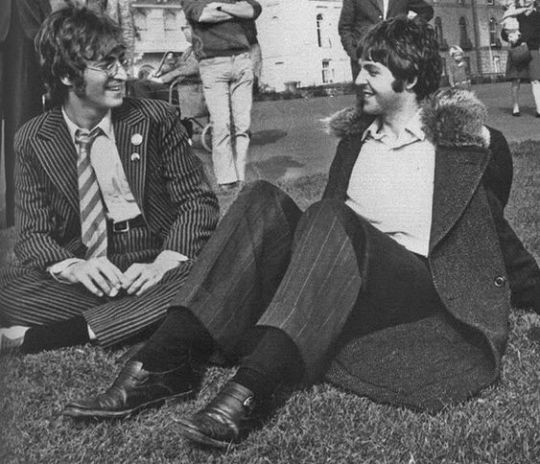
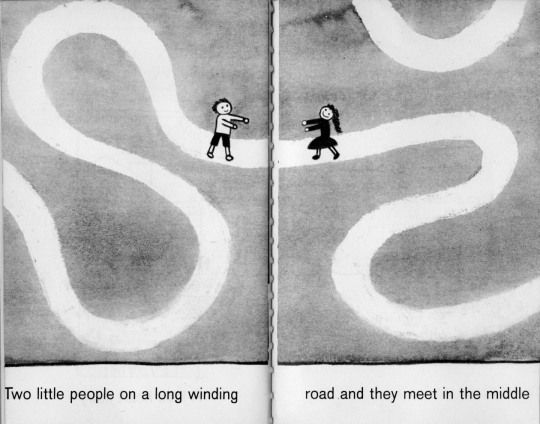
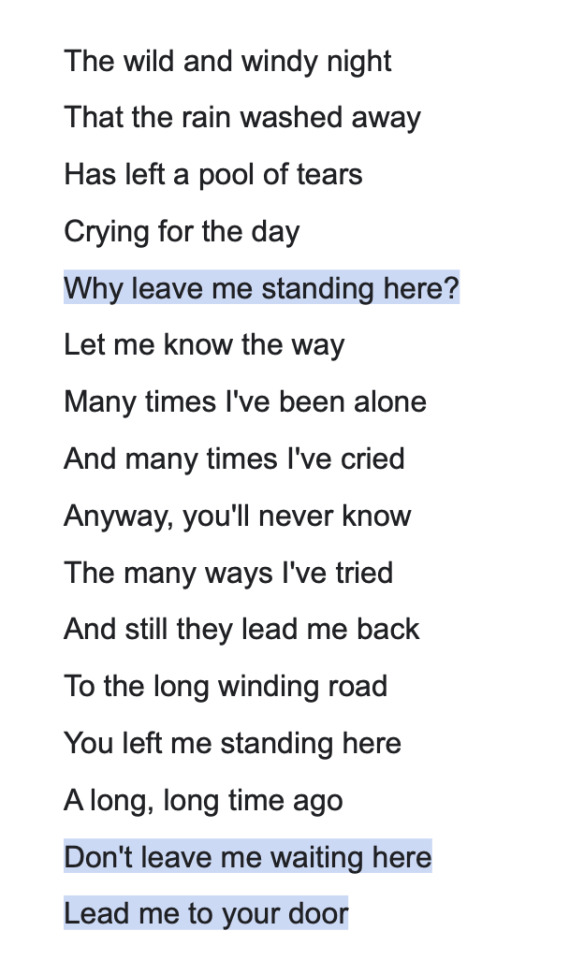
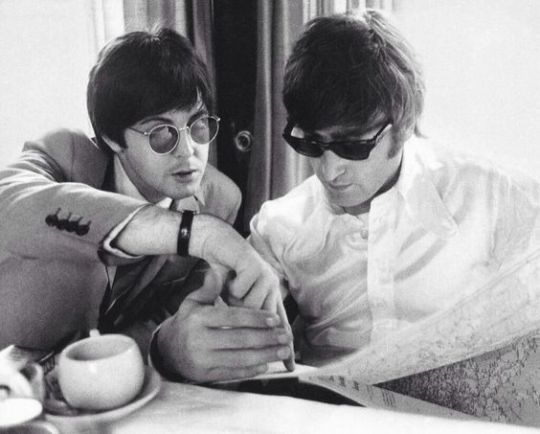
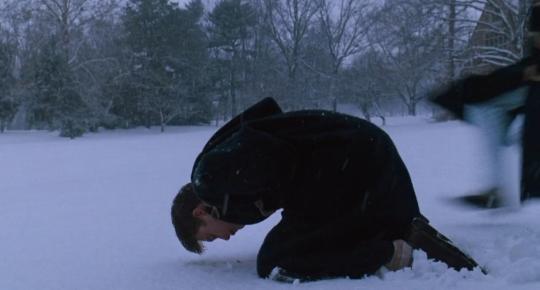
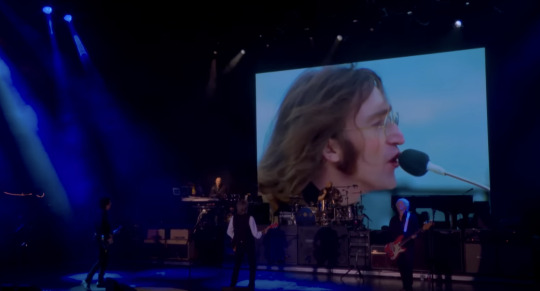
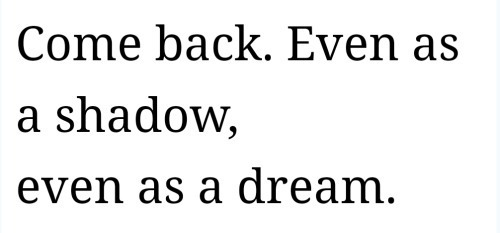
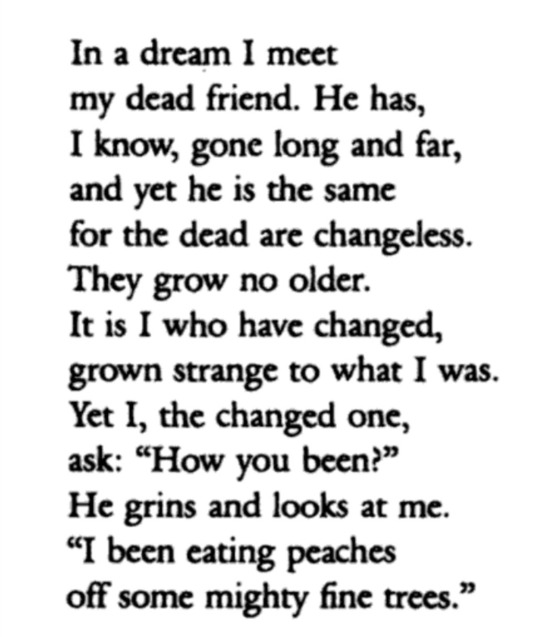
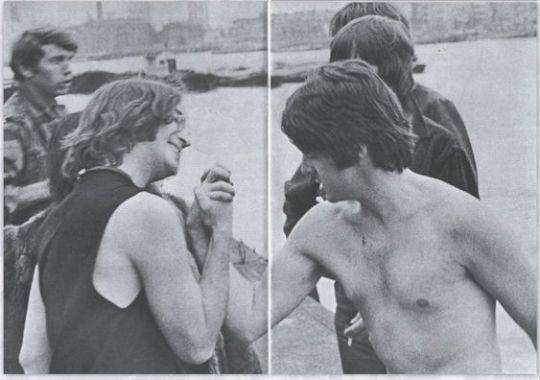


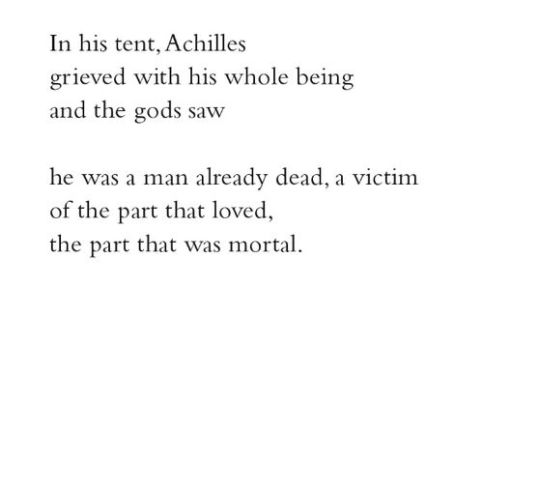

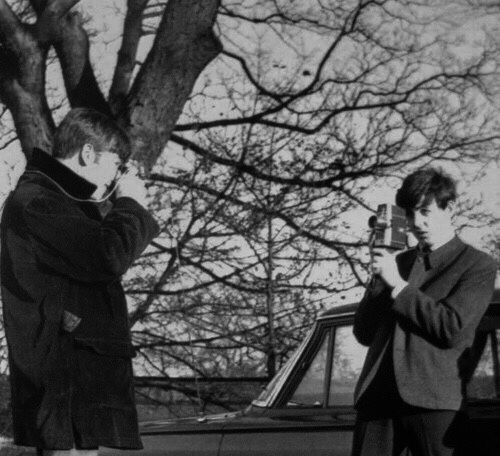
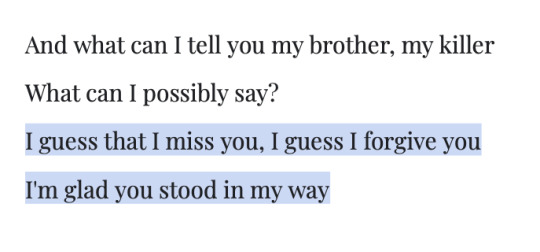
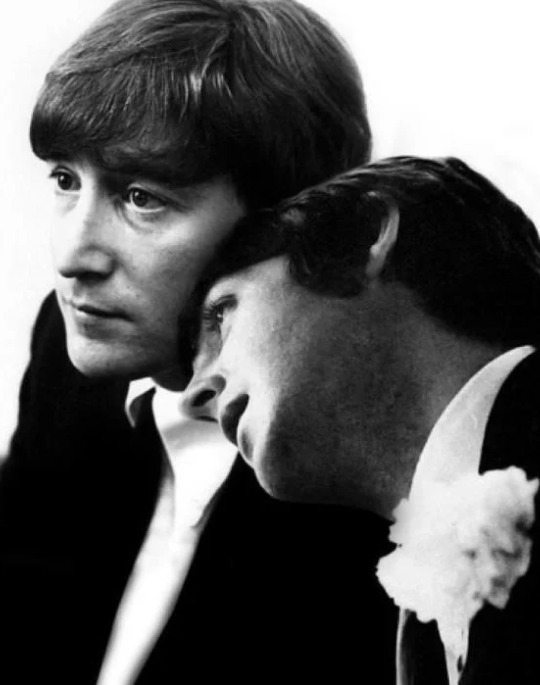
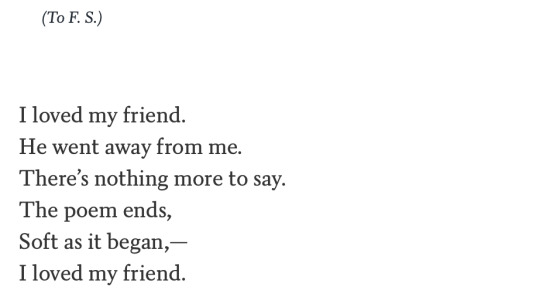
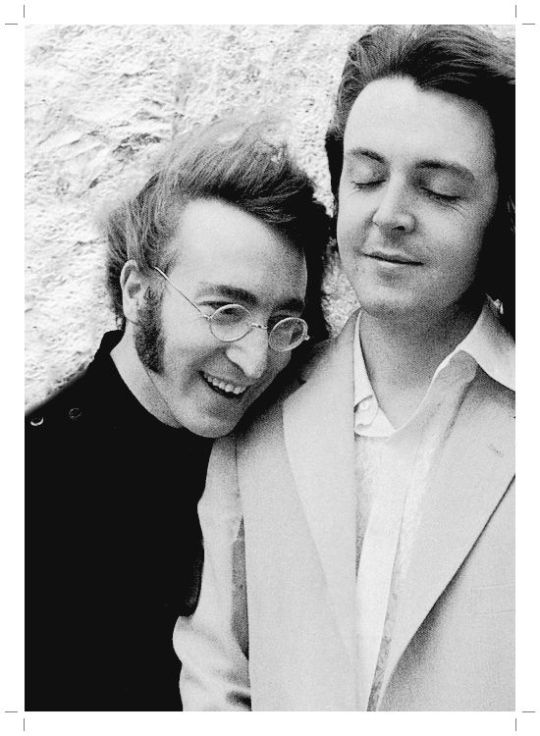
Paul McCartney and John Lennon on longing -
1. A moon or a button by Ruth Krauss 2. The Long and Winding Road: The Beatles (Lennon-McCartney) 3. Dead Poets Society (1989) dir. Peter Weir 4. Paul McCartney at Glastonbury 2022 5. Euripides, Grief Lessons: Four Plays by Euripides: tr. Anne Carson 6. A Meeting by Wendell Berry 7. Stand By Me (1986) dir. Rob Reiner 8. Paul and Linda McCartney interviewed by Joan Goodman for Playboy magazine 1984 9. The Triumph of Achilles by Louise Glück 10. Brokeback Mountain (2005) dir. Ang Lee 11. Famous Blue Raincoat by Leonard Cohen 12. I Loved My Friend by Langston Hughes
#its mclennon day fuckers get ready for me to be insufferable and crazy!!#mclennon#the beatles#web weaving#guys will be so crazy and its because they are making multiple mclennon web weaves at one time#anyways#happy mclennon day to all who celebrate#:]#stop tagging that the one photo is fake it was chosen for a reason#pls understand why i would pick photos that are doctored for this. moments that shouldve been but never were.....pls get the point#mine
403 notes
·
View notes
Text
Okay, folks, the mini-tourney is inching closer to the finals, so I'm going to give a list of the competitors in the Miss Billboard Tourney in order to give everyone a chance to submit more propaganda. The nominees are:
Lale Andersen
Marian Anderson
Signe Toly Anderson
Julie Andrews
LaVerne Andrews
Maxene Andrews
Patty Andrews
Ann-Margret
Joan Armatrading
Dorothy Ashby
Joan Baez
Pearl Bailey
Belle Baker
Josephine Baker
LaVern Baker
Florence Ballard
Brigitte Bardot
Eileen Barton
Fontella Bass
Shirley Bassey
Maggie Bell
Lola Beltran
Ivy Benson
Gladys Bentley
Jane Birkin
Cilla Black
Ronee Blakley
Teresa Brewer
Anne Briggs
Ruth Brown
Joyce Bryant
Vashti Bunyan
Kate Bush
Montserrat Caballe
Maria Callas
Blanche Calloway
Wendy Carlos
Cathy Carr
Raffaella Carra
Diahann Carroll
Karen Carpenter
June Carter Cash
Charo
Cher
Meg Christian
Gigliola Cinquetti
Petula Clark
Merry Clayton
Patsy Cline
Rosemary Clooney
Natalie Cole
Judy Collins
Alice Coltrane
Betty Comden
Barbara Cook
Rita Coolidge
Gal Costa
Ida Cox
Karen Dalton
Marie-Louise Damien
Betty Davis
Jinx Dawson
Doris Day
Blossom Dearie
Kiki Dee
Lucienne Delyle
Sandy Denny
Jackie DeShannon
Gwen Dickey
Marlene Dietrich
Marie-France Dufour
Julie Driscoll
Yvonne Elliman
Cass Elliot
Maureen Evans
Agnetha Faeltskog
Marianne Faithfull
Mimi Farina
Max Feldman
Gracie Fields
Ella Fitzgerald
Roberta Flack
Lita Ford
Connie Francis
Aretha Franklin
France Gall
Judy Garland
Crystal Gayle
Gloria Gaynor
Bobbie Gentry
Astrud Gilberto
Donna Jean Godchaux
Lesley Gore
Eydie Gorme
Margo Guryan
Sheila Guyse
Nina Hagen
Francoise Hardy
Emmylou Harris
Debbie Harry
Annie Haslam
Billie Holiday
Mary Hopkin
Lena Horne
Helen Humes
Betty Hutton
Janis Ian
Mahalia Jackson
Wanda Jackson
Etta James
Joan Jett
Bessie Jones
Etta Jones
Gloria Jones
Grace Jones
Shirley Jones
Tamiko Jones
Janis Joplin
Barbara Keith
Carole King
Eartha Kitt
Chaka Khan
Hildegard Knef
Gladys Knight
Sonja Kristina
Patti Labelle
Cleo Laine
Nicolette Larson
Daliah Lavi
Vicky Leandros
Peggy Lee
Rita Lee
Alis Lesley
Barbara Lewis
Abbey Lincoln
Melba Liston
Julie London
Darlene Love
Lulu
Anni-Frid Lyngstad
Barbara Lynn
Loretta Lynn
Vera Lynn
Siw Malmkvist
Lata Mangeshkar
Linda McCartney
Kate McGarrigle
Christie McVie
Bette Midler
Jean Millington
June Millington
Liza Minnelli
Carmen Miranda
Joni Mitchell
Liz Mitchell
Marion Montgomery
Lee Morse
Nana Mouskouri
Anne Murray
Wenche Myhre
Holly Near
Olivia Newton-John
Stevie Nicks
Nico
Laura Nyro
Virginia O’Brien
Odetta
Yoko Ono
Shirley Owens
Patti Page
Dolly Parton
Freda Payne
Michelle Phillips
Edith Piaf
Ruth Pointer
Leontyne Price
Suzi Quatro
Gertrude Rainey
Bonnie Raitt
Carline Ray
Helen Reddy
Della Reese
Martha Reeves
June Richmond
Jeannie C. Riley
Minnie Riperton
Jean Ritchie
Chita Rivera
Clara Rockmore
Linda Ronstadt
Marianne Rosenberg
Diana Ross
Anna Russell
Melanie Safka
Buffy Sainte-Marie
Samantha Sang
Pattie Santos
Hazel Scott
Doreen Shaffer
Jackie Shane
Marlena Shaw
Sandie Shaw
Dinah Shore
Judee Sill
Carly Simon
Nina Simone
Nancy Sinatra
Siouxsie Sioux
Grace Slick
Bessie Smith
Mamie Smith
Patti Smith
Ethel Smyth
Mercedes Sosa
Ronnie Spector
Dusty Springfield
Mavis Staples
Candi Staton
Barbra Streisand
Poly Styrene
Maxine Sullivan
Donna Summer
Pat Suzuki
Norma Tanega
Tammi Terrell
Sister Rosetta Tharpe
Big Mama Thornton
Mary Travers
Moe Tucker
Tina Turner
Twiggy
Bonnie Tyler
Sylvia Tyson
Sarah Vaughan
Sylvie Vartan
Mariska Veres
Akiko Wada
Claire Waldoff
Jennifer Warnes
Dee Dee Warwick
Dionne Warwick
Dinah Washington
Ethel Waters
Elisabeth Welch
Kitty Wells
Mary Wells
Juliane Werding
Tina Weymouth
Cris Williamson
Ann Wilson
Mary Wilson
Nancy Wilson
Anna Mae Winburn
Syreeta Wright
Tammy Wynette
Nan Wynn
Those in italics have five or more pieces of usable visual, written, or audio propaganda already. If you have any visuals like photos or videos, or if you have something to say in words, submit it to this blog before round one begins on June 25th!
If you don't see a name you submitted here, it's because most or all of their career was as a child/they were too young for the cutoff, their career was almost entirely after 1979, or music was something they only dabbled in and are hardly known for. There are quite a few ladies on the list whose primary career wasn't "recording artist" or "live musician," but released several albums or were in musical theater, so they've been accepted.
#long post#miss billboard tourney#i wasn't originally going to list them all but i decided to do so because there are so many without propaganda
51 notes
·
View notes
Text
I don't think Ruth McCartney knows shit about John and Paul's relationship but she really went off with "myopic misunderstood manipulative mystifying Mop-Top"
7 notes
·
View notes
Text
On the evening of March 23rd, the Kennedy Center honored Conan O’Brien with the 2025 Mark Twain Prize for American Humor. The ceremony, which attracted a mix of comedy stars and arts-adjacent members of D.C.’s beau monde, was the biggest event held by the center since February, when President Trump purged eighteen members of the nonpartisan board of directors and installed himself as chairman. With the exception of a few half-hearted references to “new management,” the currency of the night was encomiums, not political critiques. O’Brien, when his turn came to speak, made veiled jabs in the President’s general direction. (Mark Twain, he pointed out, hated bullies and defined patriotism as “supporting your country all of the time and your government when it deserves it.”) But if the evening had a true villain, it wasn’t Trump but Jay Leno, who took “The Tonight Show” back from O’Brien, in 2010, after pledging to retire.
The ceremony was held in the center’s Concert Hall, a 2,465-seat statement piece in white walls and coppery-red carpets, which was renovated in 1997 and conveyed a warm, slightly dilapidated grandeur. Afterward, guests departed for a party at the Reach, a 2019 addition spearheaded by the Kennedy Center’s former president Deborah Rutter. The seventy-two-thousand-square-foot complex of pavilions, galleries, and studios is home to much of the institution’s social-impact programming, which is aimed toward supporting marginalized artists and audiences. Last year, the annex announced a two-year residency program with Play Play DC, a collective that curates “refreshing, creative, fun, healing, and playful experiences for grown and queer adults,” and Chefs Stopping AAPI Hate.
These offerings largely pay for themselves with donations specifically set aside for social impact, but Trump and his allies argue that such “wokey” events are repelling audiences and draining the center’s resources. At a board meeting on March 17th, the President declared his intention to make the center “hot again” by staging more popular programming. Regaling trustees with memories of his first time seeing “Cats,” he noted that a Broadway hit “does well” at the center and that “we are going to have some really good shows.” He also spoke of wanting more control over the Kennedy Center Honors, the institution’s flagship awards ceremony, which has recognized such figures as Bonnie Raitt, Steven Spielberg, and Paul McCartney. Trump complained that past picks have been “radical-left lunatics” and named as possible invitees Babe Ruth, Elvis Presley, and the casino impresario Steve Wynn, a major donor; he also suggested that hosting duties for the event would by necessity fall to him, the “king of ratings.” The center’s new president, Richard Grenell, who served as Ambassador to Germany and acting director of National Intelligence during Trump’s first term, has shared few details about his programming plans but has promised a “big, huge celebration of the birth of Christ at Christmas.”
Both Trump and Grenell were conspicuously absent from the Twain festivities. At the after-party, as donors swanned past white-clothed tables bearing wilting bouquets of truffle-dusted fries, young Kennedy Center staff members, identifiable by their badges, clustered around, looking giddy and on edge. A few days earlier, Tavish Forsyth, an associate artistic lead at the Washington National Opera’s Opera Institute, had posted a YouTube video in which he stripped naked and recited a thirty-five-minute spoken-word poem about whether he should quit his job, after which he was promptly fired. The week of the ceremony, between five and ten employees had resigned. More were waiting until after the gala to quit. “We’re working extra to cover all the people we’re losing but we still don’t know what the outcome will be for our jobs personally or the programs we support at large,” a staffer told me.
Two days after the event, at least five members of the Kennedy Center’s social-impact team, including its vice-president and artistic director, Marc Bamuthi Joseph, were let go. Joseph, who had directed the division since 2019, told me he understands the official motivation to be financial. (A document obtained by NPR reportedly stated that the decision was based on the center’s “staffing needs.”) Speaking to the Washington Reporter, Grenell outlined his plan to cut back on “niche” offerings, saying, “We had spent way too much on programming that doesn’t bring in any revenue.” Former staffers stress that the mission of the Kennedy Center, a nonprofit founded in 1971, is not to make money but to represent the best of American culture. A former employee familiar with the center’s finances told me: “It is simply not accurate to say the center’s finances are in poor health. In fact, under Rutter’s leadership the center’s endowment grew more than fifty per cent.” Between 2014, when Rutter became president, and 2023, the most recent year for which tax records are publicly available, the center’s total assets increased from $470 million to $633 million. For six of those years, it ran a surplus, and the two lean years coincided with COVID’s decimation of the performing arts. “The balance sheets are proof it was in good financial health,” the former employee said.
By most measures, Trump’s takeover has darkened the center’s financial picture. Ticket sales fell by fifty per cent in early February, and haven’t rebounded. Several large donors have paused their infusions, a former staffer told me, until they have a clearer sense of the place’s new direction. Since early February, the institution has also refunded more than a hundred thousand dollars in small donations, the checks for a hundred or three hundred dollars that concertgoers regularly write as bond-cementing exercises—a worrying sign given that traditional nonprofit fund-raising often revolves around modest recurring gifts. One staffer expressed concern that DOGE’s ravaging of the federal workforce would shrink the center’s audience and donor base by slashing their disposable income.
Since the regime change, there has been a steady drip of resignations and cancellations by prominent performers, including the opera singer Renée Fleming and the comedian Issa Rae. On March 5th, Lin-Manuel Miranda announced that “Hamilton” would not be appearing at the center’s semiquincentennial celebration for the Declaration of Independence, next year, because “it’s not the Kennedy Center as we knew it . . . we’re not going to be a part of it.” Several other productions, including “Legally Blonde,” have been postponed or called off—a potentially devastating development, as Broadway shows function as the organization’s cash cows. So many artists have quietly pulled out of the 2025-26 season that the center has had to keep delaying its schedule announcements. The Kennedy Center usually unrolls its musical-theatre offerings in April, but, “at this point, I have no idea when we’ll be able to announce a theatre season,” one staff member told me.
In an unintentional nod to its namesake’s Catholicism, the Kennedy Center is a sort of trinity: performance venue, cultural center, and “living memorial” to Kennedy himself. Like all nonprofit arts institutions, it represents a delicate ecology of artists, audiences, donors, and administrators. In 2023, the center’s revenue was about two hundred and eighty-six million dollars. Around forty-five million dollars, or sixteen per cent, of its money comes from the federal government, and is earmarked for maintenance and building operations. The rest comes from ticket sales, donations, and space rentals. When the center is functioning correctly, its crowd-pleasing events bankroll art that is not always supported by the mainstream. The Washington National Opera and the National Symphony Orchestra, for instance, are revenue drags, which the center has to subsidize to the tune of nearly thirty million dollars annually. But, over time, these offerings draw gifts from donors confident that they are underwriting a vision they believe in; they also generate prestige, lure talent, and prop up endangered national art forms.
As evidence of malfeasance, Donna Arduin, the new chief financial officer, wrote in an e-mail to staff that Rutter and her team had bequeathed the center an operating deficit of more than a hundred million dollars. But several employees called Arduin’s claim misleading, as she referenced only earned revenue—box-office profits minus expenses—and not contributions, which, in a typical year, comprise about forty per cent of the center’s revenue. (In an e-mail to the Washington Post, the new head of public relations, Roma Daravi, wrote: “I understand this can be confusing to grasp. An ‘operating deficit’ is the net margin from operations. Net margin is revenues minus expenses. The extreme mismanagement of funds is certainly shocking and was designed to leave the Center in the red.”) An employee also disputed Grenell’s complaint, two days after he took over, that “there is ZERO cash on hand,” pointing out that, because theatre tours are seasonal, “cash on hand” fluctuates throughout the year and is a flawed benchmark. Certainly, the person said, there are ill-advised shows that lose money. Trump’s two-hour appearance at the Kennedy Center on March 17th—during which he peacocked on a balcony and bragged about his musical aptitude—cost the organization more than fifty thousand dollars.
Sprucing up the Kennedy Center building has emerged as a priority for Trump, the real-estate grandee; during his visit, he groused that his predecessors had left it in “tremendous disrepair” and mused about covering the exposed columns with his signature marble. Grenell, who has accused the previous leadership of “criminal” financial mismanagement, submitted that the federal funds designated for physical upkeep had been spent on D.E.I. initiatives, a claim that is contradicted by publicly available records. (Since 2020, one of the members of the Kennedy Center’s audit committee—which is responsible for monitoring its outlays—has been the Trump appointee Pam Bondi.)
Mary Helen Bowers, who joined the Kennedy Center board near the end of Trump’s first term, told me that she was excited for a “return to commonsense programming.” She’d been dismayed by “drag shows at a family theatre.” (One of the more than two thousand events hosted at the center last year was “Dragtastic Dress Up,” a gathering with snacks and lip-synching by the artist Tara Hoot, who bills her act as “Mr. Rogers in a dress.”) “That’s telling a large part of the American population, ‘Your family values aren’t important to us,’ ” Bowers said.
Bowers, who trained as a professional ballerina, is married to Paul Dans, one of the architects of Project 2025. When I asked whether she personally felt accepted by the old leadership, she paused. “Superficially, yes,” she said. “But I voiced complaints and concerns . . . that anything that would be more sexually oriented shouldn’t be geared toward families, for lots of different reasons, if nothing else it’s simply bad business. When I shared those thoughts, I don’t know that anything was really done other than ‘Hey, Mary Helen, thanks for letting us know.’ ”
Going forward, Bowers said that the board would focus on “getting the center into better financial health, really honing in on what people want to see and which shows produce higher attendance and revenues.” She was confident that Trump could right the ship. “We have one of the best businessmen in the world stepping in and putting a lot of energy into turning the Kennedy Center around,” she told me, referring to the President, “and I think the finances will reflect that.”
According to one former administrator, Trump’s leadership team has brought in its own fund-raisers, whose strategy seems rooted in political, rather than arts-based, fund-raising. “There’s more of an expectation of access to the chairman” in exchange for sponsorship, the person said. Grenell, who spent the Biden years developing luxury tourist sites in Serbia and Albania, suggested at a recent meeting that Trump’s plans to beautify the center were advancing; a proposal was under way to refurbish the lounges in front of the main theatres. Foreign governments—he expressed interest in seeking donations from the Gulf states and Japan—would fund the renovations. An employee described Nick Meade, Grenell’s chief of staff, prowling around campus “trying to see where else we can put a lounge or a bar or any space to put a donor name on.”
Grenell’s character—Trump has described him as “a fighter”—does not at a glance mark him out for arts administration. Nor is he an obvious diplomat; in a room of carrots and sticks, Grenell favors the sledgehammer. On a 2024 podcast, he argued that America needs a “tough” Secretary of State who “goes in to these tables and says, ‘Guys, if we don’t solve this here, if we don’t represent peace and figure out a tough way, I’ve got to take this file, go back to the United States, and transfer it to the Secretary of Defense, who doesn’t negotiate. He’s going to bomb you.’ ”
In Grenell, Trump has found a deputy who shares his aggressive posting style. After Miranda pulled the “Hamilton” performance, Grenell retaliated on social media: “This is a publicity stunt that will backfire. The Arts are for everyone—not just for the people who Lin likes and agrees with.” On March 13th, Vice-President J. D. Vance was booed at the National Symphony Orchestra. “This was not a young crowd,” an employee who attended the performance told me, “so it was pretty remarkable.” Grenell, the administration’s highest-profile openly gay member, sent a staff-wide e-mail stating that “as President, I take diversity and inclusion very seriously” and that “intolerance towards people who are politically different is just as unacceptable as intolerance in other areas.”
Most shows that have been called off so far have involved artists pulling out, but, in February, the Kennedy Center abandoned several productions involving L.G.B.T.Q. and progressive themes, ostensibly for financial reasons. A two-week run of the play “Eureka Day,” which explores vaccine skepticism at a private school, was scrapped, along with a Pride celebration featuring the N.S.O. and the Gay Men’s Chorus of Washington, D.C. Thea Kano, the chorus’s artistic director, told me that the Kennedy Center has traditionally maintained close ties to the L.G.T.B.Q. community. “We’ve done many concerts there; we tend to do our big anniversary concerts there every five years,” she said. When the chorus was founded, in 1981, she continued, “a lot of venues in this town wouldn’t respond to our phone calls.” With the cancellation of the Pride performance this summer, Kano said, “it feels like we’ve gone back in time.”
One of the first programs to be junked was a children’s musical called “Finn,” about a shark who comes to accept his sparklier, gentler side. A Kennedy Center spokesperson told Deadline that the show, which was co-created by Chris Nee, Michael Kooman, and Christopher Dimond, was discarded for “purely financial” reasons. “Finn” had been developed in partnership with the Kennedy Center in 2024, and had sold out shows in its initial run. It was scheduled to tour not only in 2026 but also in 2027, “which is rare for the Kennedy Center and is a testament to how much they believed in the piece,” Nee said. The idea that “Finn” was an encumbrance on the institution’s budget, she continued, “doesn’t make a lot of sense.” Dimond added, “It’s shocking and terrifying, just how politicized this has all become.”
On March 6th, as cancellations were rolling in, I attended a comedy show at the Reach that featured an all-female lineup. “Traumedy by Rola Z: A Comedy Showcase for Catharsis” began with free coffee, quiche, and falafel, and ended with a Q. & A. with two therapists. Rola Z., a local comedian who organized the show, took the stage with a disclaimer that nothing she was about to say represented the official views of the Kennedy Center. The comic Elizabeth Booker Houston jokingly expressed solidarity with the MAGA movement. She, too, pined for the “good old days,” she said, when “white men used to die.” Now, “they keep living and running for office,” she added, to screams of laughter from the crowd.
Houston told me that she had weighed her decision to perform at the Reach carefully. In the end, she concluded, it would be more meaningful to show up. “I’m not a billionaire,” she added. Maysoon Zayid, who was billed as the show’s headliner, was the last to perform. She spoke about the terror of constantly wondering whether her friends and family in Palestine had been killed. Over text, Zayid echoed Houston in her Kennedy Center calculus. “I actually can’t afford to cancel this gig,” she wrote. “I am a disabled woman living in America.”
Other artists are performing a different calculus. The novelist Thomas Mallon, a frequent New Yorker contributor, told me that he and his collaborators pulled “Fellow Travelers,” an opera based on his book, from the 2025-26 classical lineup ahead of its announcement on March 27th. “Fellow Travelers (the opera as well as the novel on which it’s based) is a love story set against the ruthless purging of gay people from the State Department in the 1950s. It ultimately stands for the expansion of freedom and liberty for all people,” Mallon wrote in an e-mail. “I look forward to its eventual presentation in Washington, when decency has been restored to the White House and independence has been regained by the Kennedy Center.”
On March 17th, the producers Seth Rudetsky and James Wesley Jackson partnered with “Finn” ’s creators to present a special performance in protest of the show’s cancellation at the Town Hall in New York City. They invited Broadway and screen stars, including Andrew Rannells, Michael Urie, and Nikki M. James, to play the main parts. The G.M.C.W. also appeared, with the New York City Gay Men’s Chorus singing alongside them in solidarity. Rudetsky said, of the show, “I heard that it was about a trans shark. I thought, Sounds fun. And then I saw the script and was, like, Wait, what?” Nee and Dimond’s story was sweet and innocent, its L.G.B.T.Q. allegory quiescent beneath an uncontroversial message of acceptance. “I thought it was going to be, like, the shark gets down,” Rudetsky said. “But this can be translated into anything. Don’t hide what’s inside of you. Be yourself.”
Rudetsky and Jackson discussed the vital role that the Kennedy Center has historically played in the theatre ecosystem. The venue is an important “tryout theatre,” a place where productions can be tested and tweaked before appearing on Broadway or on the West End. “Annie” and “Les Misérables” both tried out at the Kennedy Center, Rudetsky told me. The center has produced multiple Broadway shows, and it regularly hosts out-of-town auditions. It is—or was—a site of tremendous good will from the thespian community. “For our actor friends, doing a show at the Kennedy Center is like, oh, my gosh, if you’re going to do anything outside of New York, it’s, like, Yes, Kennedy Center is it!” Jackson said. Urie told me that he’d performed at the Kennedy Center twice, for “How to Succeed in Business Without Really Trying” and “Spamalot,” and that he’d loved it. But “I can’t imagine that I would say yes” if a gig materialized now, he continued. He was skeptical that they would even ask.
After talking to the singers and actors, I took my seat in the packed house to watch “Finn” and the gay men’s choruses. At the end of the evening, which featured a magnificently game Rannells belting “Can I still make the Shark Guard if I declare that I have an inner fish?,” the choruses came out to perform a mash-up of two songs by Stephen Sondheim, “No One Is Alone” and “Not While I’m Around.” As the arrangement concluded, the singers locked into unison on “round,” and a ripple of harmonics spun off the note and tumbled toward the ceiling.
In search of the psychic wound that got us here, commentators often cite Trump’s tense history with the Kennedy Center Honors. In 2017, after several prominent artists threatened to boycott the event if Trump showed up, the President broke with thirty-nine years of tradition by not only skipping the star-studded gala but also refusing to host the recipients at the White House beforehand. For the rest of his first term, Trump struck an outwardly chilly pose toward the Kennedy Center. But, behind the scenes, a former staffer told me, the Administration maintained a “productive” and “positive” relationship with the cultural hub. Trump filled the Kennedy Center’s Presidential Box—a V.I.P. area overlooking the stage of the 2,364-seat Opera House—with guests and loyalists almost every night.
This time is different. Trump’s interventionist tack speaks to his desire to extend his reach deep into the cultural life of the country. Although the President’s mockery by the creative and cultural élite has long rankled him, it’s the melding of his hurt feelings with his instinct for stagecraft and its uses that has crystallized the Kennedy Center as one of his prime targets. Trumpologists stress that the President once dreamed of being a Broadway producer. In the eight weeks since his Kennedy Center takeover, he has shown that he also wants to be the flattered consumer, the glittering patron, the inescapable star. The Kennedy Center, a system marked by the interplay of many moving pieces, is on a collision course with a man who yearns to absorb everything into himself. If he has his way, he’ll be the only show in town.
4 notes
·
View notes